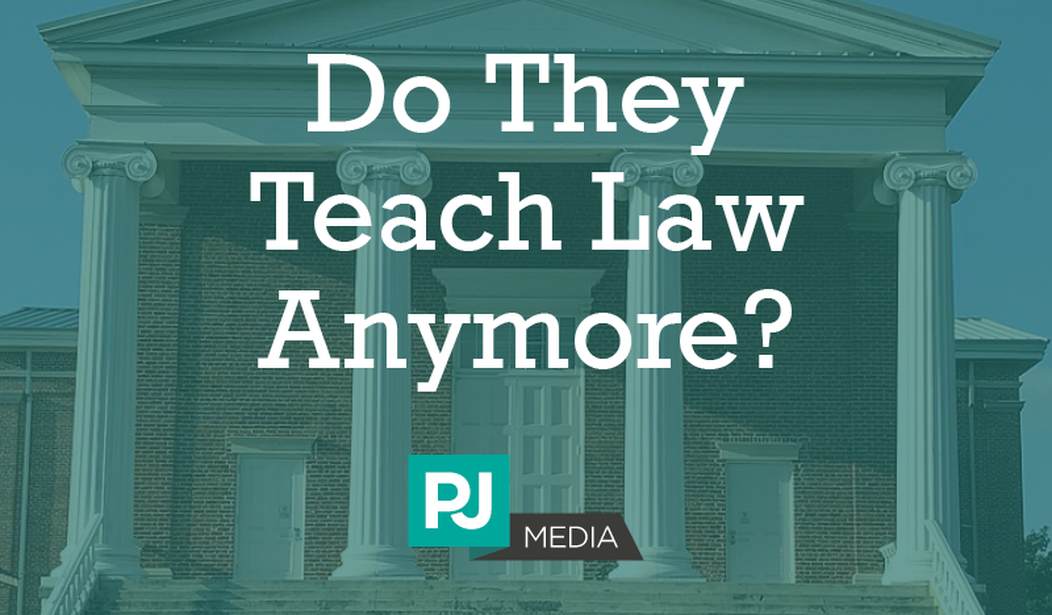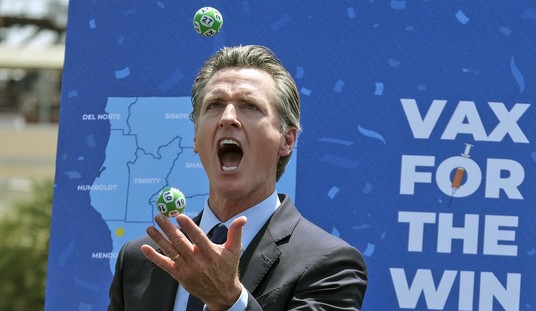Note: This is the fourth in a 10-part series at PJ Media examining what our nation’s top 10 law schools – according to U.S. News and World Report – are teaching. J. Christian Adams and I are undertaking a deep dive into what is being taught in these law schools. We have already covered Yale, Stanford, and Chicago.
If you thought based on our coverage of the curriculums at Yale, Stanford, and Chicago that you had seen the worst of the political indoctrination that passes for a law school education these days, wait until you see the curriculum at the Columbia Law School in New York City.
Parents are paying $331,350 — or students are going into enormous debt — for what amounts to a three-year reeducation camp at Columbia to produce leftist social warriors who will, as Christian says, “upend centuries of legal traditions and institutions,” including trashing the U.S. Constitution, to usher in the Marxist, socialist utopia they think we should be. And just like the other schools we are examining, everything is centered not on training budding lawyers to analyze a legal issue and provide sound advice to a client or to serve as an effective prosecutor who can protect the public from dangerous criminals, but rather on convincing students that we live in a systematically racist, sexist society engaging in mass incarceration for political reasons.
The law school’s focus on “diversity, equity, and inclusion” is such a “fixture of the Columbia Law experience” that the law school’s “Social Justice Initiative” has a weekly “discussion series” on “social activism, civil and human rights, racial justice, law and the arts, and mass incarceration.” The school even has its own equivalent of Soviet-style political commissars to ensure everyone toes the line: the Anti-Racism Coordinating Committee, whose job is “tracking, advancing, and supporting the Law School’s anti-racism agenda.” Apparently, the law school envisions its raison d’etre to be engaging its students “in the hard work of self-examination” and “charting a course for a future built on a strong and indefatigable commitment to combating structural racism.”
Among the required courses for first-year students is “Critical Legal Thought L6173.” It teaches “critical approaches to the assertion of the law’s objectivity and rationality,” including readings that “cover Feminist and Critical Race critiques of law’s aspiration to objectivity and neutrality.” It is through that biased lens that what used to be standard legal courses like torts, contracts, criminal law, property, and civil procedure will be “examined.” Gosh, I never realized that the standard rules of civil procedure that govern how civil cases proceed in the courts and that are applied neutrally to all parties in a lawsuit were racially discriminatory.
Naturally, this will be followed by another required course, “Legal Methods II: Critical Race Methods: Practices, Prisms, and Problems L6130.” According its description, the U.S. “suffers from many forms of discrimination” and this course will examine the “interface between legal interpretation, lawmaking practices, and racial hierarchy,” focusing on intersectionality, historicism, anti-formalism, social construction, storytelling, and denaturalizing baselines.” No doubt knowing about “intersectionality” will help the school’s graduates file well-reasoned, well-written appellate briefs – NOT.
Haven’t had enough CRT? Then you can take the “Critical Race Theory Workshop L9219,” so you can conduct an extended study of “the legal, social and political issues raised by ‘prison slavery’ and compulsory prison labor in the U.S.” I bet you didn’t realize that slavery still exists in America because criminals in prison are often given the ability to work in order to learn a marketable skill and earn a modest income. The court promises to teach students how to use CRT as a “practical tool” for “social movement advoca[cy] and activities.”
Also read: Yale Law School—EXPOSED
Apparently, though, the school believes that prisons shouldn’t exist in the first place. In “Breakthrough in Abolition Through Transformative Learning Exchange L9032,” students are taught that our prisons only exist because of “mass incarceration and the prison industrial complex.” The course is designed to train “Justice-involved advocates” to organize responses to “structural racism, mass incarceration and intergenerational disenfranchisement of communities of color.”
The prison industrial complex? The coining of that term is certainly interesting, since the costs of our justice system, particularly our prisons and jails, are a huge budget outlay for governments, whether they are federal, state, or local. They certain don’t make profits from this supposed “prison industrial complex.” But the entire course is geared towards its “abolition,” which is the basic theory behind the defund-the-police movement and progressive activists like Angela Davis who want to close all our prisons. Didn’t you know? All of the supposed criminals in our prisons are really victims of a biased, racist system. As if New York didn’t already have a bad enough crime problem.
Of course, the leadership of Columbia Law School believes that we all live in a sexist society that must be thoroughly cleansed of its systematic gender discrimination. To learn how to do that, students can take “Gender Justice L6506” and “Sexuality and Gender Law Practicum L9833.” In the first course, you will learn all about our “sexual difference, gender-based stereotypes, sexuality/sexual orientation, gender identity, and the meaning of equality in a range of contexts.” The latter course “empowers students with a cutting-edge opportunity to step into the shoes of lawyers advocating on sexuality and gender law issues with leading organizations doing this work” and promises enrollees that they will “gain insight into movement lawyering.”
And don’t forget climate change and environmental justice warriors. There is course after course on this, ranging from “Climate Change Law and Policy L6038” to “Environmental Justice L9825” to “Advanced Climate Change Law L8451.” The latter is designed to teach students “legal techniques that can be used to fight climate change.” Are there any courses that teach students how to defend individuals, businesses, or government entities from meritless environmental lawsuits and overreaching administrators? Not that I could see.
By the way, with the rise of anti-Semitism on campuses including at Columbia, it is probably no surprise that the law school offers a “Reading Group on Palestine and the Law L8495.” Apparently, the “racialized structures of discrimination and injustice in Palestine” has nothing to do with the authoritarian, terrorist regimes that have run Palestine. The course examines “Israeli domestic law, U.S. domestic law, or international law.” Who knew that our domestic law is responsible for the “inhumane treatment of Palestinian prisoners”? Or that “surveillance, checkpoints, and citizenship laws” are implemented as “tools of population control” as opposed to trying to stop the constant terrorist attacks by Palestinians in Israel?
It seems obvious that the law school’s brainwashing on all these issues is working given the absurd protests that broke out when the student chapter of the Federalist Society posted a photograph of its members visiting with Supreme Court Justice Brett Kavanaugh, who spoke to them about “the Court’s deliberation process, and how to be an effective advocate.” You know, the type of topics you would hope a law school would be teaching.
But other student groups like the National Lawyer Guild called Kavanaugh a “white supremacist,” an outrageous, defamatory fabrication, and said the meeting with a justice of the Supreme Court was a “symptom” of “patriarchy” and “gender-based violence.” The Latinex Law Students Association claimed this photo “demonstrates a threat to racial justice and hard-won civil rights achievement.”
No, really, that is what these budding lawyers actually said. This is just more evidence for future employers that if you want to hire objective, professional, skilled advocates to handle your legal issues, you might want to go elsewhere. Hiring a Columbia Law School graduate may well prove to be a waste of your money.









Join the conversation as a VIP Member